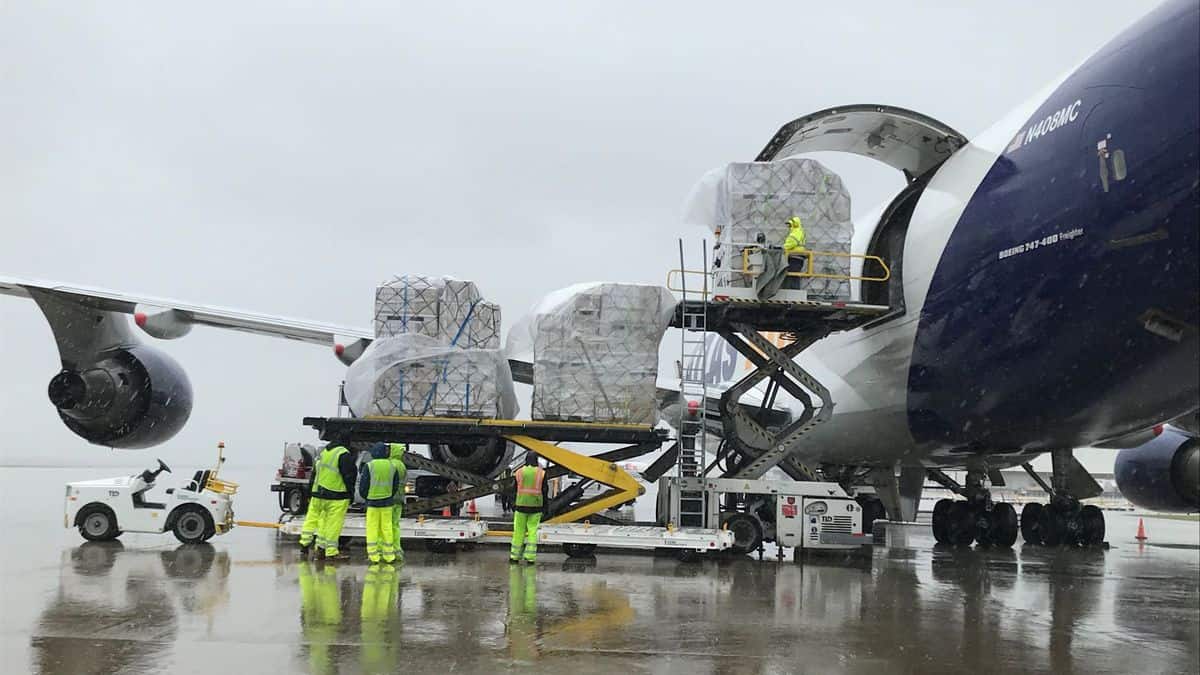
Airport logistics might seem like a complex puzzle, but it's a well-oiled machine ensuring everything runs smoothly. Ever wondered how your luggage gets from the check-in counter to the plane? Or how fresh produce from another continent lands on your plate? Airport logistics covers everything from cargo handling to passenger services. It's a behind-the-scenes ballet of coordination, technology, and human effort. From the moment you book a ticket to the time you collect your bags, countless processes work in harmony. Let's dive into some fascinating facts about this intricate system that keeps the world connected and moving efficiently.
Key Takeaways:
- Airport logistics involves handling millions of passengers and tons of cargo, using advanced technology and human expertise to ensure smooth operations and timely deliveries.
- The future of airport logistics includes innovations like biometric scanning, automated security, and even drone delivery, promising more efficient and enjoyable air travel experiences.
The Complexity of Airport Logistics
Airport logistics is a fascinating and intricate system that ensures passengers and cargo move smoothly from one place to another. Let's dive into some intriguing facts about how airports manage this complex task.
-
Airports Handle Millions of Passengers Annually
Major airports like Hartsfield-Jackson Atlanta International Airport see over 100 million passengers each year. This requires meticulous planning and coordination to ensure everyone gets to their destination on time. -
Baggage Handling Systems Are Highly Automated
Modern airports use advanced technology to sort and transport luggage. These systems can handle thousands of bags per hour, reducing the risk of lost luggage and speeding up the process.
The Role of Technology in Airport Logistics
Technology plays a crucial role in streamlining airport operations. From check-in to security, various systems work together to enhance efficiency.
-
Biometric Scanning for Faster Check-Ins
Many airports now use biometric scanners for check-ins. This technology speeds up the process by verifying passengers' identities through facial recognition or fingerprints. -
Automated Security Screening
Automated security lanes use advanced imaging technology to scan passengers and their belongings quickly. This reduces wait times and enhances security.
Cargo Logistics: The Unsung Hero
While passenger logistics get most of the attention, cargo logistics are equally important. Airports handle massive amounts of cargo daily, ensuring goods reach their destinations promptly.
-
Airports as Cargo Hubs
Airports like Memphis International Airport serve as major cargo hubs. Memphis handles over 4 million metric tons of cargo annually, thanks to its strategic location and efficient logistics. -
Cold Chain Logistics
Airports have specialized facilities for cold chain logistics, ensuring perishable goods like food and pharmaceuticals remain at the required temperatures during transit.
Environmental Considerations in Airport Logistics
Airports are increasingly focusing on sustainability. Various initiatives aim to reduce the environmental impact of airport operations.
-
Green Airports
Some airports are adopting green practices, such as using renewable energy sources and implementing waste reduction programs. Denver International Airport, for example, has extensive solar power installations. -
Electric Ground Support Equipment
Airports are replacing traditional ground support equipment with electric alternatives. This reduces emissions and noise pollution, contributing to a cleaner environment.
The Human Element in Airport Logistics
Despite the high level of automation, human expertise remains crucial in airport logistics. Skilled professionals ensure everything runs smoothly.
-
Air Traffic Controllers
Air traffic controllers play a vital role in managing aircraft movements. They coordinate takeoffs, landings, and in-flight routing to ensure safety and efficiency. -
Ground Handling Staff
Ground handling staff manage various tasks, from guiding aircraft to gates to loading and unloading cargo. Their work is essential for maintaining tight schedules.
Future Trends in Airport Logistics
The future of airport logistics looks promising, with several innovations on the horizon. These advancements aim to make air travel even more efficient and enjoyable.
- Drones for Cargo Delivery
Some airports are experimenting with drones for cargo delivery. This technology could revolutionize how goods are transported, making the process faster and more efficient.
The Final Word on Airport Logistics
Airport logistics are a complex dance of coordination, technology, and human effort. From baggage handling to air traffic control, every piece plays a crucial role in ensuring smooth operations. Security measures keep passengers safe, while ground services maintain aircraft readiness. Cargo logistics ensure timely delivery of goods worldwide. Passenger services enhance travel experiences, making journeys more comfortable. Environmental considerations are increasingly important, with airports striving for sustainability. Technological advancements like automated systems and AI are revolutionizing efficiency. Emergency response teams stand ready for any situation, ensuring safety. Customs and immigration processes facilitate international travel. Maintenance crews keep everything running smoothly. Understanding these elements gives a deeper appreciation for the intricate world of airport logistics. Next time you travel, remember the unseen efforts that make your journey possible.
Frequently Asked Questions
Was this page helpful?
Our commitment to delivering trustworthy and engaging content is at the heart of what we do. Each fact on our site is contributed by real users like you, bringing a wealth of diverse insights and information. To ensure the highest standards of accuracy and reliability, our dedicated editors meticulously review each submission. This process guarantees that the facts we share are not only fascinating but also credible. Trust in our commitment to quality and authenticity as you explore and learn with us.


